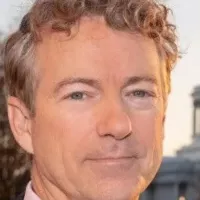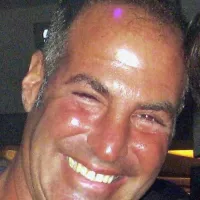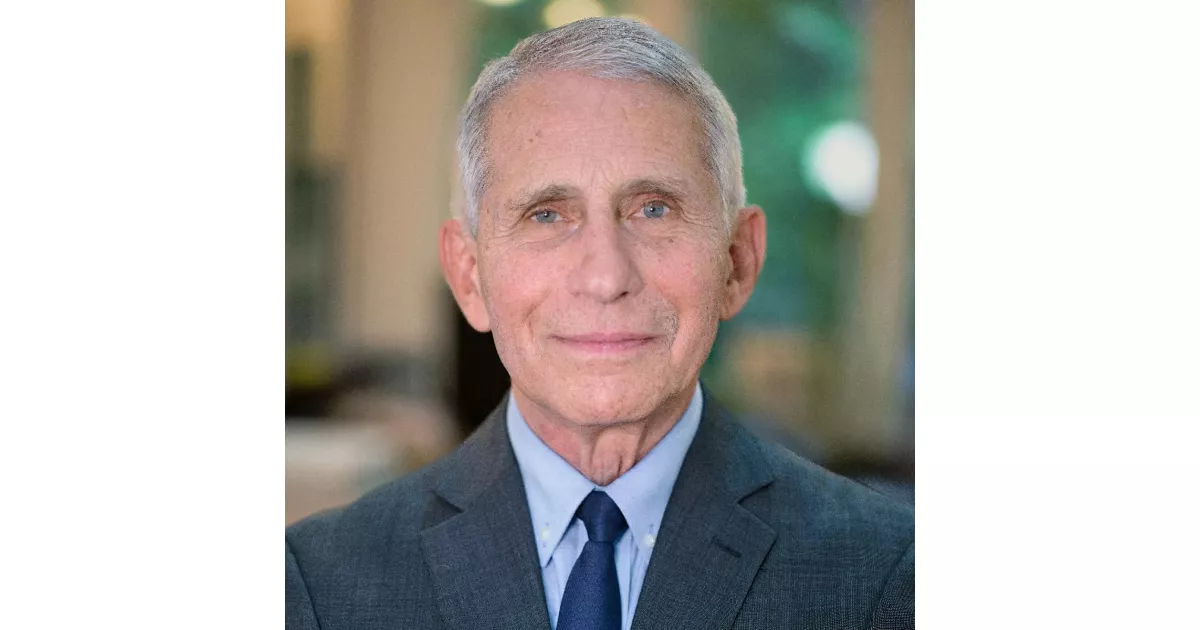How Anthony Fauci built a successful career. Explore key moments that defined the journey.
Anthony Stephen Fauci is a prominent American physician-scientist and immunologist. He directed the National Institute of Allergy and Infectious Diseases (NIAID) from 1984 to 2022 and served as chief medical advisor to the president from 2021 to 2022. He is renowned as one of the most cited scientists globally (1983-2002). Fauci received the Presidential Medal of Freedom in 2008 for his significant contributions, notably his work on the AIDS relief program, PEPFAR. His career has been dedicated to researching and combating infectious diseases, making him a key figure in public health.
1968: Joined NIH
In 1968, Anthony Fauci joined the National Institutes of Health (NIH) as a clinical associate in the National Institute of Allergy and Infectious Diseases's (NIAID) Laboratory of Clinical Investigation (LCI).
1974: Head of LCI Clinical Physiology Section
In 1974, Anthony Fauci became head of the LCI's Clinical Physiology Section.
1980: Chief of NIAID Laboratory of Immunoregulation
In 1980, Anthony Fauci was appointed chief of the NIAID's Laboratory of Immunoregulation.
1984: Director of the NIAID
In 1984, Anthony Fauci became the director of the NIAID.
1985: Recognition for Treatment Advances
In 1985, Anthony Fauci's work on the treatment of polyarteritis nodosa and granulomatosis with polyangiitis was ranked as one of the most important advances in patient management in rheumatology over the previous 20 years by members of the American Rheumatism Association.
1986: Fauci becomes one of the principal editors of Harrison's Principles of Internal Medicine
In 1986, Anthony Fauci became one of the principal editors of Harrison's Principles of Internal Medicine, starting with the 11th edition. He was named on the front cover of the book.
September 17, 2009: H1N1 Virus Prediction
On September 17, 2009, Anthony Fauci predicted that the H1N1 virus causing the 2009 swine flu pandemic could infect as many as one in three Americans.
October 16, 2014: Ebola Virus Crisis Testimony
On October 16, 2014, Anthony Fauci testified in a United States congressional hearing regarding the Ebola virus crisis, stating that NIAID was still some distance away from producing sufficient quantities of cures or vaccines for widespread trials.
January 2020: White House Coronavirus Task Force
In January 2020, Anthony Fauci was a member of the White House Coronavirus Task Force.
March 2020: Predicted Infection Fatality Rate
In March 2020, Anthony Fauci predicted that the infection fatality rate would likely be close to 1%, which was ten times more severe than the 0.1% reported rate for seasonal flu.
May 21, 2020: Fauci delivers guest remarks for the Johns Hopkins University Class of 2020
On May 21, 2020, Anthony Fauci delivered guest remarks for the Johns Hopkins University Class of 2020, offering his insights and experiences to the graduating students.
June 2020: Concerns About Protests
In June 2020, Anthony Fauci expressed concerns that protests against police brutality would cause "surges" in COVID-19 cases.
June 2020: Release of Fauci's Emails
In early June 2021, over 3,000 internal government emails sent by Fauci from January to June 2020 were obtained by media outlets through Freedom of Information Act (FOIA) requests, providing insight into the early COVID-19 response.
July 6, 2020: Opinion on COVID-19 Situation
On July 6, 2020, Anthony Fauci stated the country's situation pertaining to COVID-19 "is really not good", pointing to more than 55,000 new cases on July 4, 2020.
July 7, 2020: COVID-19 Death Rate
On July 7, 2020, Anthony Fauci stated that it was a "false narrative to take comfort in a lower rate of death" for COVID-19 in the country.
July 2020: Advice to Avoid Crowds
In July 2020, Anthony Fauci advised the public to "avoid crowds of any type" amid the COVID-19 pandemic.
September 23, 2020: Fauci Defends COVID-19 Mitigation Recommendations
On September 23, 2020, during a Senate hearing, Dr. Fauci defended the CDC's COVID-19 mitigation recommendations, including social distancing and mask-wearing, against Senator Rand Paul's questioning, citing that the recommendations remained valid.
October 2020: Fauci objects to Trump campaign ad
In October 2020, Fauci objected to the Trump campaign using his words in an advertisement, stating that his words were taken out of context and he had never made a political endorsement. He clarified that he was referring to how hard the Coronavirus Task Force was working.
November 2, 2020: Trump hints at firing Fauci
On November 2, 2020, during a rally, President Trump insinuated he would fire Fauci after the election, amidst chants from the audience to "Fire Fauci!", while falsely claiming the pandemic was "rounding the turn".
December 3, 2020: Biden asks Fauci to be Chief Medical Advisor
On December 3, 2020, President-elect Joe Biden asked Fauci to serve as chief medical advisor to the president in the Biden administration, in addition to remaining in his role as director of the NIAID. Fauci accepted the offer.
January 3, 2021: Fauci Responds to Trump's Claim of Exaggerated COVID-19 Deaths
On January 3, 2021, Dr. Fauci refuted President Trump's claim that COVID-19 deaths were exaggerated, affirming the reality of over 300,000 deaths in the US and highlighting the severity witnessed in hospitals.
January 2021: Fauci Experiences "Liberating Feeling" Under Biden Administration
In January 2021, after Biden's inauguration, Fauci expressed feeling "liberated" due to the new administration's commitment to transparent and open science, and became involved in the COVID-19 vaccine rollout plan.
January 23, 2021: Fauci Discusses Challenges During Trump Administration
On January 23, 2021, Fauci stated that during the Trump administration, "letting the science speak" caused him "trouble" and "push-back", and that he was blocked from appearing on The Rachel Maddow Show.
March 23, 2021: Fauci admitted as honorary fellow of the Royal College of Physicians of Ireland
On March 23, 2021, Anthony Fauci was admitted as an honorary fellow of the Royal College of Physicians of Ireland, recognizing his contributions to the field of medicine.
April 2021: Fauci Describes Race Between Vaccinations and COVID-19 Surge
In early April 2021, Fauci described the situation in the United States as "almost a race between getting people vaccinated and this surge that seems to want to increase".
May 2021: Fauci on COVID-19 origin and summer camp guidance
In early May 2021, Fauci described the CDC's summer camp guidance as "conservative" and "a bit strict". Also in early May, Fauci said that he is "not convinced" that COVID-19 originated naturally and that "we should continue to investigate what went on in China".
June 2021: Release of Fauci's Emails
In early June 2021, over 3,000 internal government emails sent by Fauci from January to June 2020 were obtained by media outlets through Freedom of Information Act (FOIA) requests, providing insight into the early COVID-19 response.
June 22, 2021: Fauci Calls Delta Variant "Greatest Threat"
On June 22, 2021, Dr. Fauci identified the SARS-CoV-2 Delta variant as the "greatest threat" to eliminating COVID-19 in the United States, highlighting its potential to impede progress.
July 2021: Fauci recommends masks due to Delta variant
In July 2021, Fauci recommended that all people wear masks regardless of vaccination status, due to the much more contagious Delta variant.
December 2021: Fauci Endorses Universal Coronavirus Vaccine
In December 2021, Fauci, with colleagues, endorsed the development of a universal coronavirus vaccine and promoted international collaboration to study coronaviruses in animals.
2021: Chief Medical Advisor
In 2021, Anthony Fauci became the chief medical advisor to the president.
2021: Fauci praises Bush's work to combat HIV/AIDS
In 2021, Anthony Fauci praised George W. Bush's work to combat HIV/AIDS through PEPFAR, a global health initiative. Fauci highlighted Bush's commitment to health equity and the moral responsibility of wealthy nations to help those suffering due to their circumstances.
February 2022: Fauci Discusses the End of the "Full-Blown Pandemic Phase"
In February 2022, Fauci stated that decisions regarding COVID-19 management would increasingly be made locally, with individuals making their own choices, as the world moves out of the "full-blown pandemic phase".
March 2022: Fauci Predicts Increase in COVID-19 Cases from BA.2 Subvariant
In March 2022, Fauci stated that the United States should expect an increase in COVID-19 cases from the BA.2 subvariant of Omicron, but it might not lead to a severe increase in hospitalizations and deaths.
April 27, 2022: Fauci Declares US "Out of the Full-Blown Explosive Pandemic Phase"
On April 27, 2022, Fauci announced that the United States was "out of the full-blown explosive pandemic phase" of COVID-19, marking a significant shift in the pandemic's trajectory.
May 15, 2022: Fauci says he would resign if Trump wins in 2024
On May 15, 2022, Fauci stated that he would resign if Donald Trump wins the 2024 U.S. presidential election.
July 2022: Fauci Discusses Potential Departure and Partisan Polarization
In a July 2022 interview, Fauci discussed leaving his role by the end of President Biden's term and his desire to help repair partisan polarization in science.
August 22, 2022: Fauci announces his Resignation
On August 22, 2022, Fauci announced that he would step down from his position in December "to pursue the next chapter" of his career.
2022: Stepped Down
At the end of 2022, Anthony Fauci stepped down as one of the lead members of the White House COVID-19 Response Team and as Biden's chief medical advisor.
2022: Fauci serves as one of the principal editors of Harrison's Principles of Internal Medicine
In 2022, Anthony Fauci was one of the principal editors of Harrison's Principles of Internal Medicine up to the 21st edition.
June 26, 2023: Fauci Joins Georgetown University Faculty
On June 26, 2023, Georgetown University announced that Fauci would join its faculty as a distinguished professor in the School of Medicine and McCourt School of Public Policy, effective July 1.
2024: Fauci says he would resign if Trump wins the 2024 election
On May 15, 2022, Fauci stated that he would resign if Donald Trump wins the 2024 U.S. presidential election.
Mentioned in this timeline

Bill Gates an American businessman and philanthropist revolutionized personal computing...

Donald John Trump is an American politician media personality and...

George W Bush the rd U S President - is...

Joe Biden is an American politician who served as the...

Rand Paul is an American politician and ophthalmologist He has...

The White House located at Pennsylvania Avenue NW in Washington...
Trending

7 minutes ago Padma Lakshmi shines in 'America's Culinary Cup' amidst 'Top Chef' departure.

7 minutes ago Tennis star Aryna Sabalenka announces engagement to Georgios Frangulis before Indian Wells tournament.
8 minutes ago Turkey: NATO intercepts Iranian missile over Mediterranean, escalating regional tensions and highlighting defense capabilities.

8 minutes ago NJ Transit Commuters Face Disruptions as Portal Bridge Repairs and Cutover Progress
8 minutes ago Strategy Adds 3,015 BTC as Bitcoin Holds Steady; Doubles Down on Crypto

9 minutes ago Sid Rosenberg Faces Backlash, Apologizes for Attack on Mayor Mamdani; WABC Defends Host
Popular

Hillary Diane Rodham Clinton is a prominent American politician lawyer...

Ken Paxton is an American politician and lawyer serving as...

Jesse Jackson is an American civil rights activist politician and...

Jim Carrey is a Canadian-American actor and comedian celebrated for...

Bill Clinton served as the nd U S President from...

XXXTentacion born Jahseh Dwayne Ricardo Onfroy was a controversial yet...
